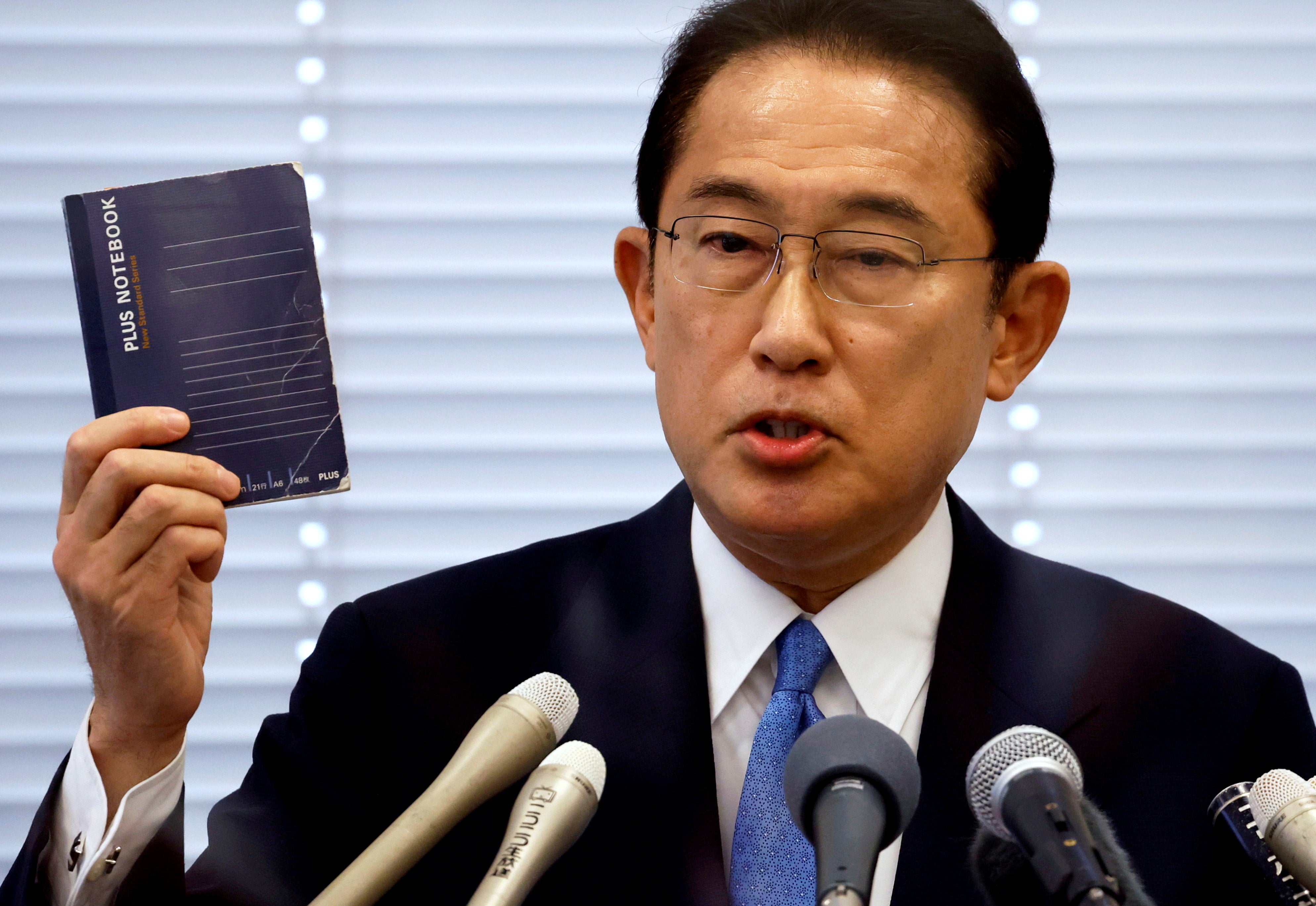Fumio Kishida: Japan’s ruling party names former top diplomat as new leader and next PM
Known to be soft-spoken and moderate, Mr Kishida will be tasked with calling an election by 28 November

Your support helps us to tell the story
From reproductive rights to climate change to Big Tech, The Independent is on the ground when the story is developing. Whether it's investigating the financials of Elon Musk's pro-Trump PAC or producing our latest documentary, 'The A Word', which shines a light on the American women fighting for reproductive rights, we know how important it is to parse out the facts from the messaging.
At such a critical moment in US history, we need reporters on the ground. Your donation allows us to keep sending journalists to speak to both sides of the story.
The Independent is trusted by Americans across the entire political spectrum. And unlike many other quality news outlets, we choose not to lock Americans out of our reporting and analysis with paywalls. We believe quality journalism should be available to everyone, paid for by those who can afford it.
Your support makes all the difference.Japan’s ruling party has declared former foreign minister Fumio Kishida as the winner of its leadership election, leaving him poised to become the country’s next prime minister when Yoshihide Suga steps down on Monday.
Mr Kishida has won the governing party’s leadership election after defeating the country’s current vaccine minister Taro Kono in a tightly fought contest.
The new leader of Japan’s Liberal Democratic Party secured 257 votes against Mr Kono’s 170 in the final run-off round of the election. Mr Kishida is now certain to be elected the next prime minister on Monday in parliament, where his party and a coalition partner control the house.
Known to be soft-spoken and moderate, Mr Kishida will also be tasked with calling an election by 28 November to seek his own mandate from the public, and will have to rebuild a Japanese economy battered by the Covid-19 pandemic.
The 64-year-old Mr Kishida is a former banker from Hiroshima and is known for spearheading US president Barack Obama’s historic visit to Japan in 2016 to condemn the deadly US atomic bomb attacks of 1945.
Outgoing prime minister Mr Suga announced his decision to step down this month, completing just a year in office as his popularity took a hit during the pandemic.
Despite the dwindling vote of confidence in Mr Suga’s leadership after Covid-19 cases reached a historic surge during the Tokyo Olympics, his 58-year-old vaccine minister, Mr Kano, was viewed as a fit frontrunner and an outspoken maverick within the government.
Mr Suga’s administration came under fire for pushing ahead with the decision to host the Olympics, albeit without spectators, as Japan struggled to contain the spread of Covid-19.
The country hit one million Covid-19 cases in August this year as the Olympics were underway. Mr Suga later announced that he would not seek re-election.
Political observers have said that Mr Kishida’s takeover of the Japanese government will bring increased attention to efforts to boost Japan’s defence and security ties with its Quad counterparts – the United States, India and Australia – given his diplomatic background and a very brief stint as acting defence minister.
The de facto prime minister-elect is also seen as a steady hand, able to deal with the aggressive foreign policy stance of of Xi Jinping’s China, while balancing crucial Sino-Japanese economic ties. Mr Suga’s successor has already said he envisages a ramping up of Japan’s coastguard resources.
While the change in leadership is unlikely to be marked with a huge shift in the Japanese government’s policies, Mr Kishida is also expected to prioritise reducing income disparity. Fiscal consolidation will be a major pillar of his government, he has said, pointing out how the 2018 stimulus measures from the Japanese government cannot last forever.
Nonetheless, in a step seen as course-correction after Mr Suga’s administration, Mr Kishida has said that the Bank of Japan should maintain its massive stimulus and has suggested a spending package of more than 30 trillion yen (nearly £200bn). Japan will also not raise a sales tax rate from 10 per cent for the next 10 years, he has indicated.


Join our commenting forum
Join thought-provoking conversations, follow other Independent readers and see their replies
Comments